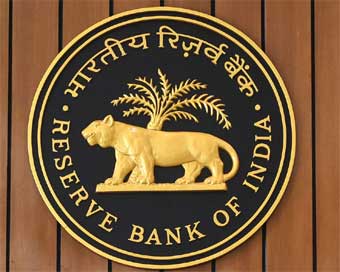KUALA LUMPUR: The higher disposable income enjoyed by Malaysians working in Singapore can create a sense of financial freedom but they also miss out on the benefits that come with employer contributions to their retirement savings, industry experts said.As more Malaysians seek better-paying job opportunities in Singapore, they enjoy a significant boost in disposable income, often leading to an enhanced sense of financial freedom.Higher wages and a favourable exchange rate make living in Singapore financially appealing for many, allowing for a more comfortable lifestyle and increased spending power.
However, this immediate financial benefit comes with a trade-off—many Malaysian workers in Singapore miss out on the long-term security that the Employee Provident Fund (EPF) system provides, specifically the employer contributions to their retirement savings.Recruitment agency ManpowerGroup Singapore revealed that the number of job applications from Malaysians between December 2023 to January 2024 has doubled compared to the same period in 2022 and 2023.Another recruitment firm in Singapore, Cultivar Staffing & Search, said job postings in the first quarter of 2024 received up to 30 per cent more Malaysian applicants compared to the same period last year.

A TALE OF TWO SYSTEMSMalaysian workers employed in Singapore are not required to contribute to Singapore's Central Provident Fund (CPF).This results in higher take-home pay for these foreign workers, as their gross salary is not subject to CPF contributions.On the other hand, in Malaysia, the EPF requires employer contributions—13 per cent for employees earning below RM5,000 and 12 per cent for those earning above RM5,000.
While this system may seem advantageous for workers in Malaysia, it cannot match the higher salary and the strength of the Singapore dollar that Malaysian workers enjoy across the border.Sunway University economics professor Dr Yeah Kim Leng told Business Times that the ability to earn equivalent or higher salaries in Singapore and the boost from its strong currency translate into higher earnings in ringgit."These advantages provide Malaysians working in Singapore with the opportunity to build larger 'nest eggs' in a shorter period, provided they have strong savings discipline and living costs in Singapore do not escalate," he said.
Yeah noted that Singapore, already a highly developed and advanced economy, attracts Malaysians seeking opportunities for higher income, a better living standard, advanced skills, career growth and international exposureTaylor's University senior lecturer Paul Anthony Maria Das added that many Malaysians choose to work there for higher salaries but retire in Malaysia, where EPF withdrawals offer more financial freedom."As a result, Malaysians often engage in circular migration, where Malaysians work in Singapore but retain savings in Malaysia, with many returning home before retirement to maximise cost advantages."However, those who obtain permanent resident status may stay longer in Singapore to benefit from CPF's structured retirement framework despite withdrawal restrictions," he said.
MALAYSIA'S TALENT POOLJobstreet Malaysia managing director Nicholas Lam said the human resources management or consulting sector generated the highest level of interest from the talent pool exploring job opportunities in Singapore.Other key industries include manufacturing, construction, engineering and healthcare."Notably, the information technology sector saw the most significant increase in malaysian applicants when comparing the first and second halves of 2024, suggesting a rising interest in these fields," he said.
From an educational standpoint, Lam said Malaysia is cultivating a highly skilled workforce, with over 70 per cent of professionals holding tertiary qualifications, reflecting a robust higher education system and commitment to developing talent that meets and often surpasses industry standards."The increasing presence of skilled Malaysian professionals in the regional job market further solidifies Malaysia's status as a prominent talent hub in Southeast Asia," he said.Lam also noted that digital and technological skills remain in high demand, especially as industries increasingly adopt Generative AI (GenAI), data analytic and automation.
He stated that Malaysian professionals are showing strong adaptability and a proactive approach to upskilling, particularly in AI, software development and cloud computing, which are essential for businesses across various sectors."With a future-ready workforce, Malaysia continues to strengthen its position as a key hub for skilled professionals, driving innovation and economic growth in the digital era," he added.Meanwhile, Yeah said Malaysians are working in a wide spectrum of low to high wage jobs in Singapore, with 300,000 to 400,000 citizens work there.
With menial work paying higher wages in Singapore coupled with the three times higher exchange rate, he said many Malaysians are found working in lower or unskilled jobs."The low salary level in Malaysia is therefore a major push factor explaining the sizeable Malaysian diaspora in Singapore and their reluctance to engage in semi-skilled and unskilled occupations locally," he added. ECONOMIC IMPACTSIn long term, Yeah said brain drain and talent outflow will result in slower economic growth and lower income increases.
He pointed out that without adequate labour supply, it would be challneging for a country to attract foreign investment, further slowing down growth and worsening the loss of economic dynamism."Besides facing shortages in skilled manpower, the country's high dependence on foreign workers, estimated around 15 per cent of the labour force, is expected to increase if the outflow of Malaysians continues," he said.Echoing the same sentiment, Paul added that reduced domestic consumption and lower tax revenue may slow economic growth, while fewer high-skilled workers could hinder industrial upgrading and technological advancements.
He warned that the sustainability of EPF contributions may be at risk, particularly as Malaysia faces an ageing population and rising social security demands."A shrinking local workforce also increases reliance on foreign labour, leading to integration challenges."The property market may stagnate as fewer high-income Malaysians invest locally, while capital outflows to foreign assets could further weaken domestic economic activity," Paul said.
To mitigate the impacts, Yeah said bridging the retirement savings gap for younger workers requires a multifaceted approach.Besides ensuring that savings are prudently managed for consistent and long-term returns, he said increasing contribution rates and salary growth can significantly help."The other option is for employees to spend less and save more by increasing contribution above the mandatory amount or channelling the additional savings into the EPF account that is subject to a maximum of RM100,000 a year.
"Another measure is to restructure the retirement savings withdrawal from lumpsum to an annuity scheme that will enable retirees to receive a minimum level of income on a regular basis such as monthly or quarterly," Yeah said.Paul said the mandatory EPF contribution should be extended to include gig workers and the self-employed.He also advocated for making financial literacy programs mandatory in schools and workplaces, noting that tax incentives and matching contributions could encourage voluntary savings.
Shift to phased withdrawals instead of lump sums at 55 would promote sustainable retirement funding, alongside incentives for individuals to extend their savings period, he added."To ease future medical costs, Malaysia could introduce a dedicated healthcare savings fund within EPF, similar to Singapore's Medisave."Encouraging private pension plans and employer-sponsored retirement schemes with tax benefits would provide additional security.
"These reforms would enhance retirement readiness and savings for younger workers while strengthening Malaysia's overall social security framework," Paul said.© New Straits Times Press (M) Bhd.
Top

Malaysians working in Singapore: Financial freedom or future security?

KUALA LUMPUR: The higher disposable income enjoyed by Malaysians working in Singapore can create a sense of financial freedom but they also miss out on the benefits that come with employer contributions to their retirement savings, industry experts said.











